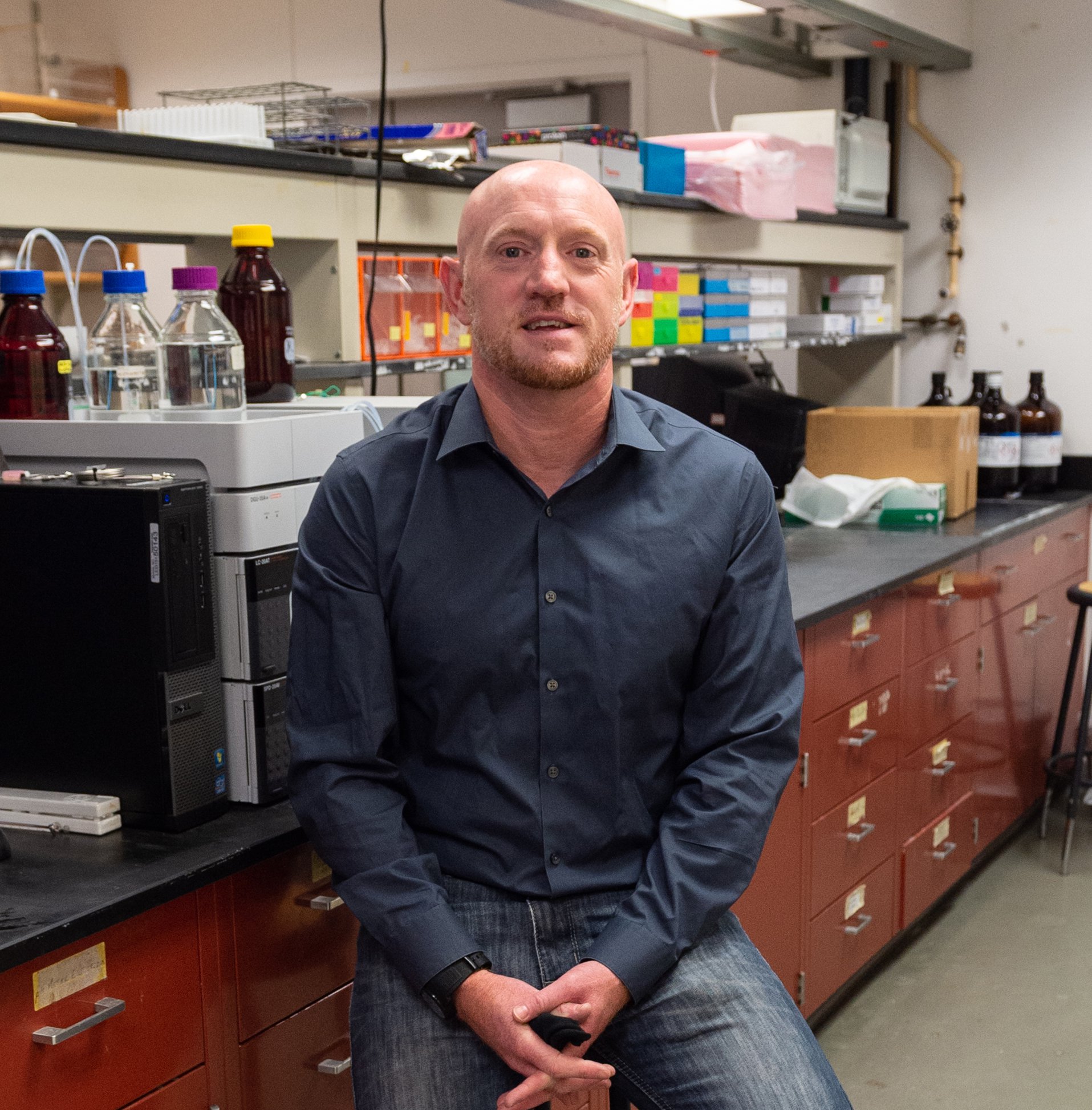A&S Chemistry Professor Presents New Research on Anti-Obesity Drug
Professor Robert Doyle shared findings at the ACS spring meeting about a potential new drug which offers steady weight loss without common, unwanted side-effects.

An experimental anti-obesity drug could reliably curb appetite and normalize blood glucose levels without causing nausea and vomiting, which are frequent side-effects of current weight-loss and diabetes drugs.
The new peptide treatment not only reduces food consumption but also increases the burn rate of calories, causing significant and consistent weight loss in laboratory animals, according to Robert Doyle, Dean’s Professor of Chemistry in the College of Arts and Sciences and associate professor of pharmacology at SUNY Upstate Medical University. Doyle is one of two principal investigators on the project, along with Christian Roth, M.D. of Seattle Children’s Research Institute.
The researchers presented their results at the spring meeting of the American Chemical Society (ACS) in March, which featured more than 10,000 invited presentations. The annual meeting offers the international science community an early look at important emerging research results. Doyle was also featured in an ACS video where he talked about the team’s findings.
Gastric bypass and related procedures cause a reboot of the endocrine system, resulting in weight loss, but surgery is not suitable or available for all who could benefit from it.
“With this new drug treatment, we aim to chemically replicate the benefits of surgery without patients having to undergo surgery,” says Doyle.
Current anti-obesity drugs do not reliably achieve long-term weight loss for all patients and often cause significant side effects, and many patients must stop taking them (about 70% within two years).
“With other drugs, patients often have to limit the amount they can take because they cannot tolerate more,” says Doyle. “There is a need for a drug that will work for everybody and guarantee a steady, uniform minimum level of weight loss. This new treatment, which could be injected in humans once a week, would be a way to lose a given percent of your weight and not feel sick while doing it.”
The researchers created the peptide drug GEP44 in the laboratory, comprising 44 amino acids that target three different weight-loss and glucoregulatory receptor pathways at the same time. The drug caused obese rats to eat up to 80% less than they would typically eat. By the end of one 16-day study, they lost an average of 12% of their weight. The drug did not induce vomiting in shrews, a mammalian model that—unlike rats—is capable of vomiting. The researchers have filed for patents and plan to test the compound in primates.
The researchers acknowledge funding from the Congressionally Directed Medical Research Programs of the U.S. Department of Defense, which is interested in this topic because many veterans have weight-related type 2 diabetes.
Featured
Robert Doyle Jack and Laura H. Milton Professor and Dean's Professor of Chemistry
